Sales tax serves as a vital revenue source for state and local governments, funding public services like education, infrastructure, and safety. In North Carolina, understanding the sales tax system is essential for residents, businesses, and consumers to ensure compliance and avoid penalties. Compared to other states, North Carolina’s sales tax structure has unique aspects, including destination-based sourcing and various exemptions, which can be confusing for many. This blog post will break down everything you need to know about North Carolina’s sales tax system.
Table of Contents
ToggleWhat Is Sales Tax?
Sales tax is a consumption tax imposed on the sale of goods and services. It is collected by sellers at the point of sale and then remitted to the state government. In North Carolina, sales tax falls into two main categories:
- Statewide Sales Tax: A flat tax rate imposed by the state on most goods and services.
- Local Sales Tax: Additional tax imposed by counties or local governments, varying by location.
The combined sales tax rate consumers pay depends on both the state and local rates applicable at the point of purchase.
Overview of North Carolina Sales Tax
Statewide Sales Tax Rate
The base state sales tax rate in North Carolina is 4.75%. However, there is a reduced rate of 2% for qualifying food items, making essential groceries more affordable for residents.
Local Sales Tax Rates
Local governments in North Carolina can impose additional sales taxes ranging from 0% to 2.75%. This means the total sales tax rate can vary significantly depending on the buyer’s location, with combined state and local rates ranging from 4.75% to 7.5%. North Carolina follows a destination-based sourcing system, meaning the applicable tax rate is determined by the location of the buyer rather than the seller.
Economic Nexus Threshold
Businesses must collect North Carolina sales tax if they exceed an economic nexus threshold of $100,000 in gross sales or 200 or more separate transactions within the state in the previous or current calendar year. This rule ensures that even remote sellers contribute to state revenue.
Historical Context
North Carolina introduced its sales tax in 1933, one of the earliest states to adopt such a tax. Over the years, the system has evolved, incorporating various exemptions and adjustments to accommodate different industries and necessities, such as exemptions for manufacturing machinery and specific nonprofit organizations.
What Is Taxable in North Carolina?
Taxable Goods and Services
In North Carolina, most tangible personal property — like electronics, clothing, and household goods — is subject to sales tax. Additionally, certain services such as admissions to entertainment events and repair services are taxable unless explicitly exempted.
Exemptions
Several items are exempt from sales tax in North Carolina, including:
- Manufacturing machinery and equipment.
- Electricity, fuel, and natural gas used directly in manufacturing.
- Certain nonprofit organizations meeting specific criteria.
These exemptions aim to support economic growth and reduce the tax burden on essential sectors.
How Sales Tax Works in North Carolina
Collection Process
North Carolina uses a destination-based sourcing system, meaning the sales tax rate is determined by the buyer’s location. Businesses are responsible for collecting the correct tax amount during the sale.
Filing and Remittance
Businesses must register with the North Carolina Department of Revenue (NCDOR) to file sales tax returns and remit the collected tax. Filing can be done monthly, quarterly, or annually, depending on the volume of sales.
Special Provisions and Exemptions
Manufacturing Exemptions
North Carolina offers significant exemptions for the manufacturing industry to encourage growth and competitiveness. Machinery, parts, and utilities used in production are generally exempt from sales tax.
Nonprofit Exemptions
Nonprofits like hospitals and volunteer fire departments may qualify for exemptions if they meet specific requirements, such as operating without profit and using goods directly for exempt purposes.
Food Tax Reduction
Qualifying food items — primarily groceries not intended for immediate consumption — are subject to a reduced sales tax rate of 2%, providing some financial relief to consumers.
Implications for Businesses
Economic Nexus Rules
Out-of-state businesses must collect and remit North Carolina sales tax if they exceed the $100,000 sales threshold or 200 transactions rule. This requirement applies even without a physical presence in the state, ensuring fair competition for local businesses.
Destination-Based Sourcing
Since North Carolina uses a destination-based sourcing model, businesses must apply the tax rate based on the buyer’s location, not where the business operates. This rule requires businesses to be vigilant in calculating the appropriate sales tax during each transaction.
Common Misconceptions About North Carolina Sales Tax
Misconception: All goods are taxed at the same rate.
Clarification: Certain items, such as qualifying food, are taxed at a reduced rate of 2% instead of the standard 4.75%.
Misconception: Only businesses with a physical presence need to collect sales tax.
Clarification: Under the economic nexus rules, even remote sellers must collect sales tax if they exceed the $100,000 or 200 transactions threshold.
How North Carolina Compares to Other States
Average Rates
The combined average state and local sales tax rate in North Carolina is approximately 6.996%, placing it 26th among U.S. states. This moderate rate balances revenue generation without imposing excessive burdens on consumers.
Unique Features
North Carolina’s destination-based sourcing distinguishes it from states like Texas or California that use origin-based sourcing. Additionally, its extensive manufacturing exemptions make it a favorable location for manufacturers.
Conclusion
North Carolina’s sales tax system, with its 4.75% statewide rate and varying local rates up to 2.75%, is designed to be both comprehensive and adaptable. Understanding the taxability of goods, exemptions, and economic nexus rules is crucial for businesses and consumers alike. Staying informed about these regulations helps ensure compliance and optimize tax planning strategies.
For residents and businesses in North Carolina, keeping up-to-date with the North Carolina Department of Revenue announcements is essential to navigate the sales tax landscape efficiently.


